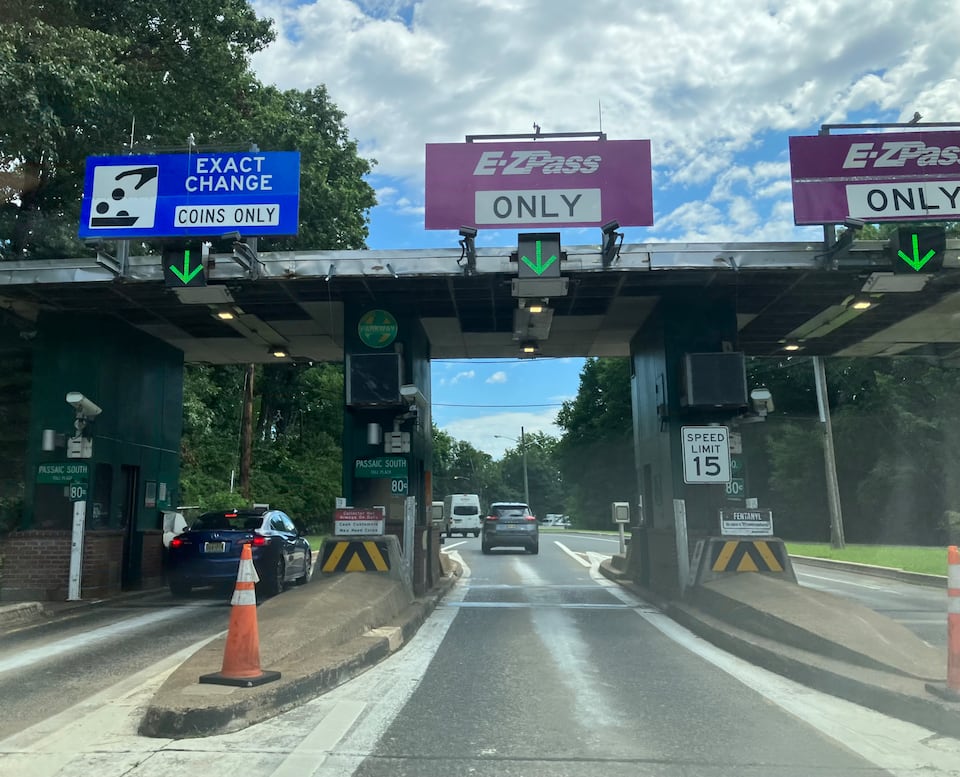By Larry Higgs
nj.com
(TNS)
A host of lawmakers want to give drivers who’ve been hit with four consecutive increases on New Jersey state toll roads a tax break.
Specifically, they want to allow those drivers who pay toll by E-ZPass to deduct tolls from their state income tax. The deductible amounts vary, according to drafts of the various bills. But the idea of allowing drivers to write off tolls on their state income taxes has faced a slippery legislative road, failing to gain traction in New Jersey in past years and in other states.
One of the only two states in the nation that allowed state tax deductions for drivers who paid tolls by E-ZPass repealed it in 2021.
There are five different flavors to the proposals, but all said that E-ZPass fees, fines or tolls that are considered business expenses and are reimbursed by an employer or deducted from federal taxes can’t be deducted under the bill.
If approved by both houses of the legislature and signed in to law by Gov. Phil Murphy, New Jersey would extend a benefit to taxpayers that few states have and the IRS doesn’t allow—deducting the cost of commuting at least when it come to tolls paid.
A bipartisan bill gives drivers the most bang for the toll buck. A bill proposed by state Sen. Patrick Diegnan, D- Middlesex, and state Sen. James Holzapfel, R- Ocean, would allow drivers to deduct $1,000 from their state income tax for travel on any in-state toll road or bi state bridge and tunnel authority that connects to New Jersey.
That bill was introduced in January and is still waiting for a hearing by the senate budget and appropriations committee.
Diegnan gave Holzapfel credit for the idea that led to the legislation.
“It’s basically to give tax relief to folks who have to commute to live their lives,” Diegnan said in an interview. “The idea at the time was (due to) the increase in the gas taxes, but it’s even more relevant with the increases in tolls.”
On March 26, Murphy signed legislation (A4011) that renews the state Transportation Trust Fund, which finances major state and interstate highway, bridge, and transit construction projects in the state.
The renewal raises a total of $15.6 billion over five years to support Department of Transportation and NJ Transit capital projects. It raises the money by increasing the current 42.3 cent-per-gallon gas tax by a 1.9 cents a year for five years.
Diegnan cited the high cost to commute into New York City every day where drivers pay a $17 cash toll in addition to other expenses as another reason for the bill.
Holzapfel couldn’t be reached for comment.
A version of that bill would limit a $1,000 annual tax deduction to users of the New Jersey Turnpike, Garden State Parkway and Atlantic City expressway if they spend more than $1,000 in tolls paid by E-ZPass, which was proposed by state Assemblyman Gregory McGluckin, R- Ocean.
In the bill statement, McGluckin mentioned the Turnpike Authority’s annual $455 million funding of NJ Transit’s operating budget and said toll payers are “paying more than their fair share for transportation and economic development projects.”
Another bill would allow drivers to write off 50% of their E-ZPass Turnpike and Parkway tolls, excluding fines, fees and tolls they’ve been reimbursed for by an employer or deducted off federal taxes as a business expense.
That bill was proposed by Assemblyman Robert J. Karabinchak, D- Middlesex, and co-sponsored by Assemblywomen Shama Haider and Ellen Park, and Assemblyman Clinton Calabrese, all D- Bergen.
A version of that bill would have the state create and fund a $250 million toll relief program that would credit 50% of tolls paid on the Turnpike, Parkway and AC Expressway to a drivers private E-ZPass account. That credit would be for one year only.
Holzapfel sponsored the senate version and Assemblymen Paul Kanitra, R- Ocean, and McGluckin sponsored the Assembly version.
“We wish tolls were fair and toll diversion was nonexistent but since that is not the case, we appreciate the attempts at compensation to make up for the disparity,” said Steve Carrellas, National Motorists Association state policy director.
The association’s preference would be “more legislative constraints on the two NJ toll road authorities for toll rate setting,” he said.
That refers to the 2020 policy change that implemented an annual 3% toll increase on the Parkway and Turnpike through a process called indexing, which has no end date.
“That is the most direct and efficient solution and would lead to much more transparency than exists today,” Carrellas said.
The federal Internal Revenue Service only allows deducting tolls for business travel, which means commuting and other driving costs aren’t allowed to be written off.
But the bills have a rough road ahead. All have been proposed in past years and never progressed beyond the legislative committees they were referred to.
“We’re not talking about a monumental amount,” Diegnan said. ”I think the governor and senate president and speaker are concerned about giving tax relief to folks. I believe it has a good chance of passing.”
Lawmakers in other states, including Maine, New York and Indiana, also have tried unsuccessfully to have their own version of New Jersey’s toll deduction legislation.
Only two states in the nation allowed drivers to write off E-ZPass tolls.
West Virginia had an up to $1,200 deduction for tolls paid in that state by E-ZPass or two state issued cards for non-commercial travel, but that law was repealed in 2021.
Massachusetts remains the only state that still allows deduction of tolls and transit fares from state income tax if they exceed $150 per person and with a maximum deduction of $750 since 2006.
_______
©2024 Advance Local Media LLC. Visit nj.com. Distributed by Tribune Content Agency LLC.
Thanks for reading CPA Practice Advisor!
Subscribe Already registered? Log In
Need more information? Read the FAQs




